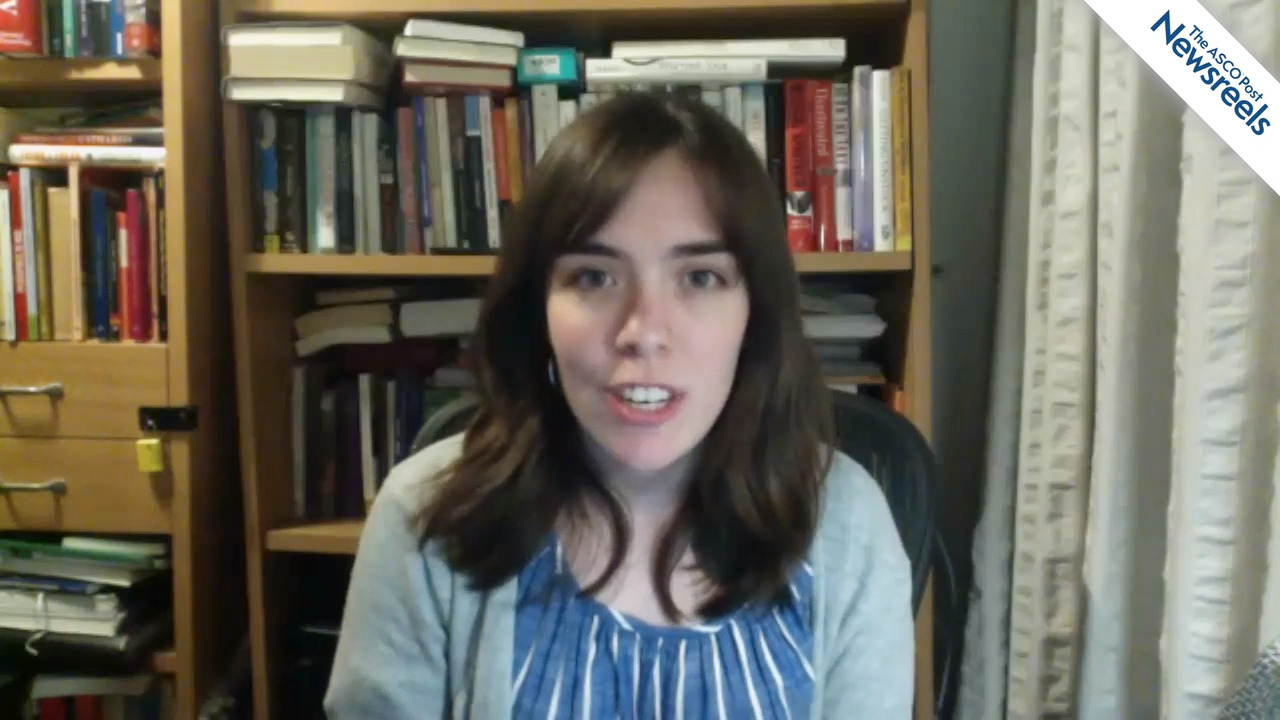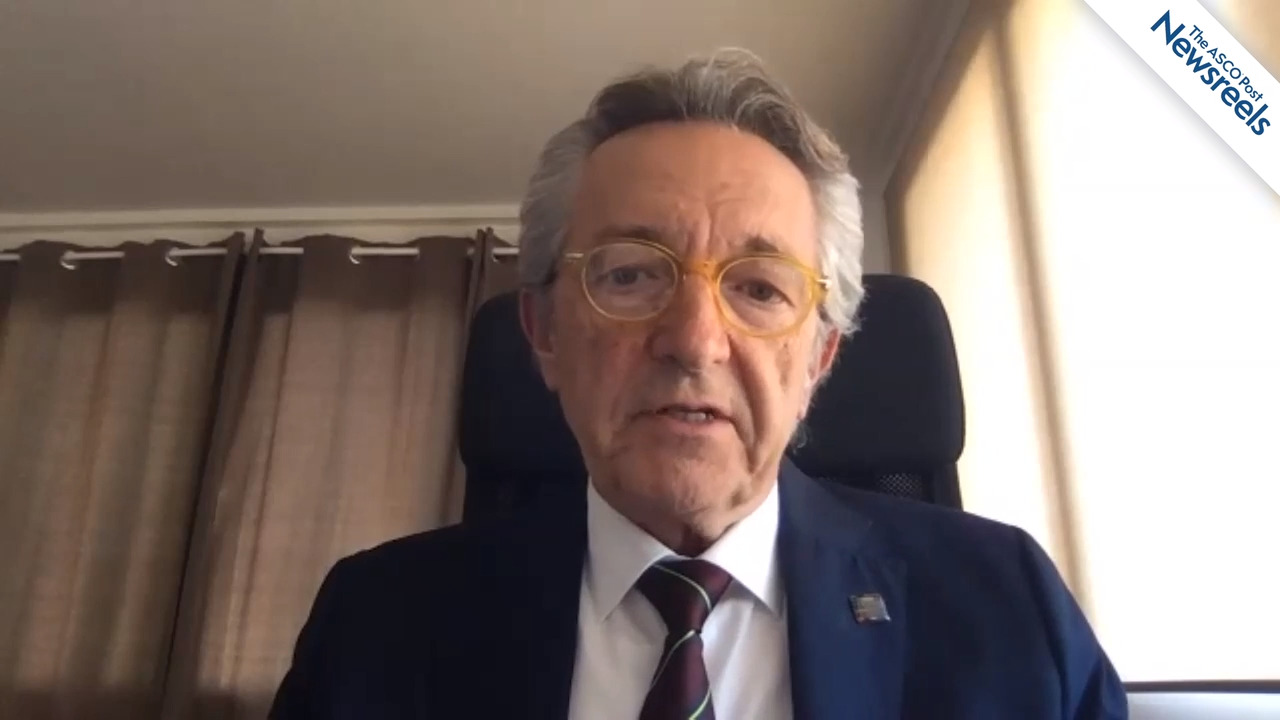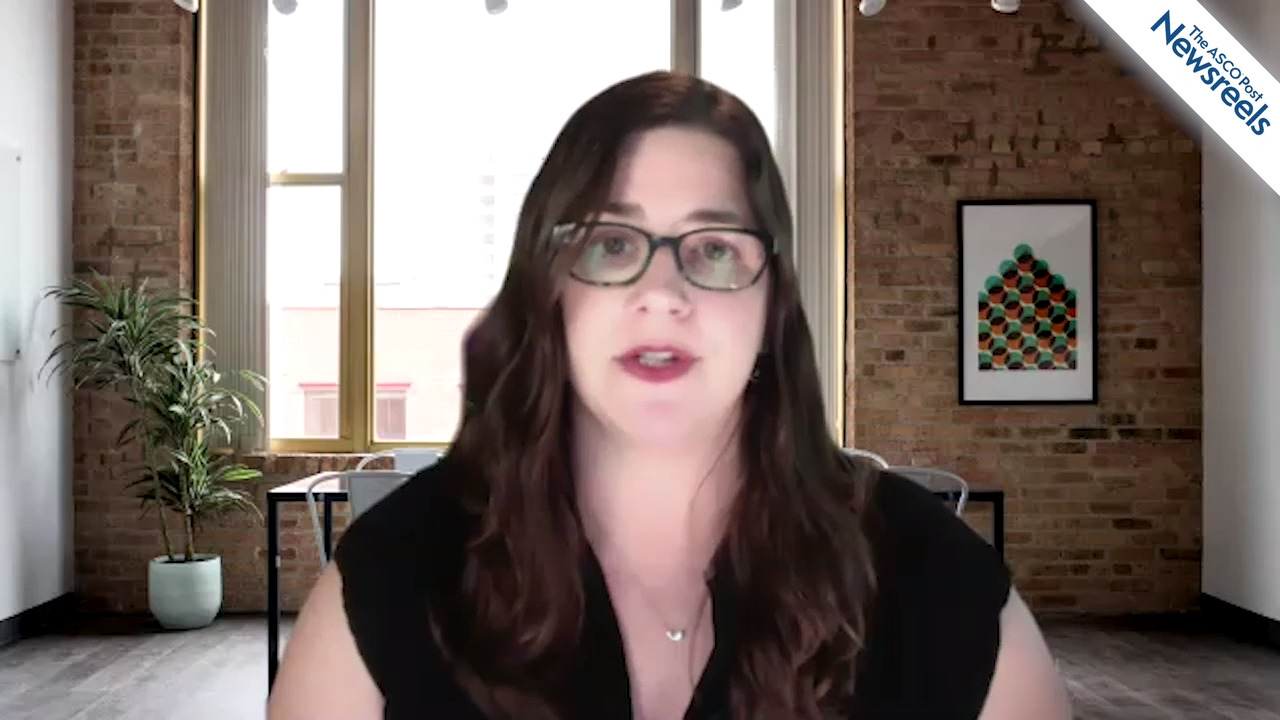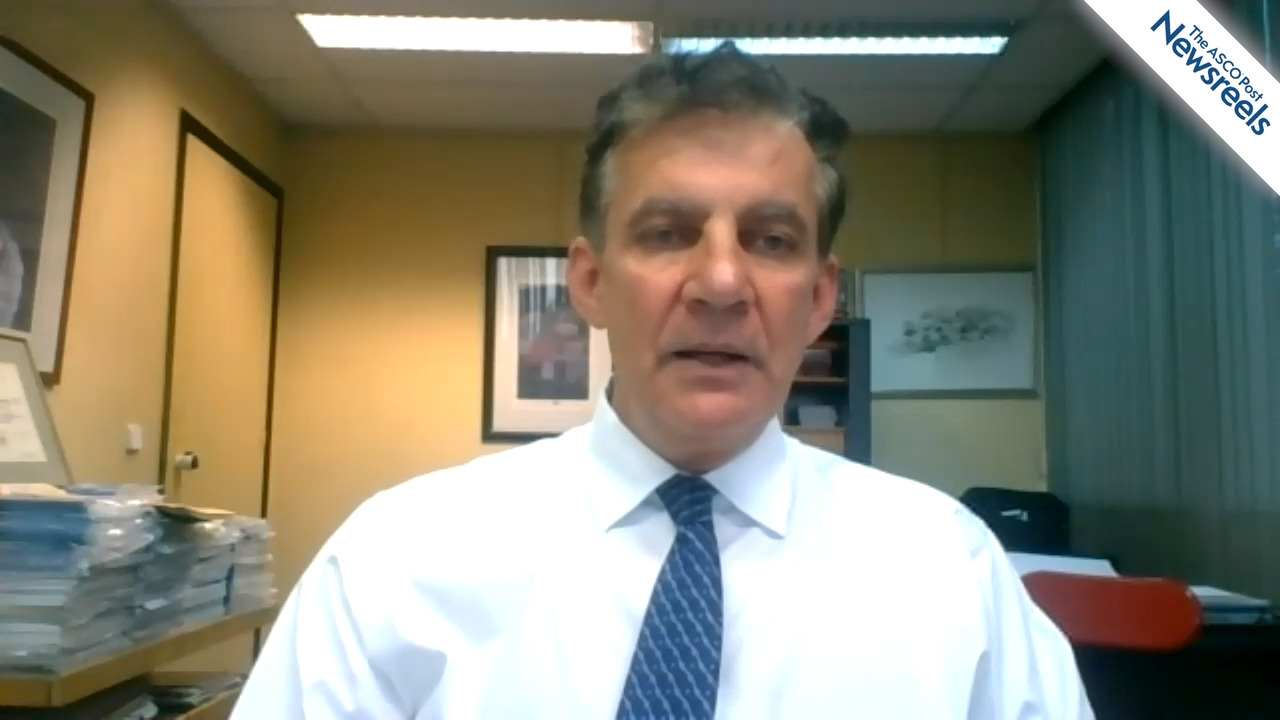Parameswaran Hari, MD, on Multiple Myeloma: Post-Autologous Hematopoietic Cell Transplantation Strategies in Upfront Treatment
ASCO20 Virtual Scientific Program
Parameswaran Hari, MD, of the Medical College of Wisconsin, discusses phase III data from a 6-year follow-up of the STaMINA trial, which compared progression-free survival among 758 patients with high-risk multiple myeloma who received a second autologous transplant and lenalidomide maintenance; consolidation with lenalidomide, bortezomib, and dexamethasone followed by lenalidomide maintenance; or lenalidomide maintenance alone (Abstract 8506).
The ASCO Post Staff
Professor Lourdes Gil Deza, of the Instituto Oncológico Henry Moore, Buenos Aires, discusses her findings on the shortcomings of medical training when it comes to treating transgender patients, and the need to deepen clinical and communication skills to assist this population (Abstract 11002).
The ASCO Post Staff
Christopher Sweeney, MBBS, of Dana-Farber Cancer Institute, talks with Thomas Powles, MD, PhD, of Queen Mary University of London, about the first study to demonstrate a survival advantage with avelumab for metastatic urothelial cancer. In the trial, avelumab improved median overall survival by 21.4 months compared with 14.3 months with best supportive care (Abstract LBA1).
The ASCO Post Staff
Andres Poveda, MD, of Initia Oncology, discusses phase III results from the SOLO2 trial, which showed that, compared with placebo, maintenance olaparib improved median overall survival by 12.9 months in patients with platinum-sensitive, relapsed ovarian cancer and a BRCA mutation (Abstract 6002).
The ASCO Post Staff
Merry-Jennifer Markham, MD, ASCO’s Cancer Communications Chair, gives her views on key papers presented at the ASCO20 Virtual Scientific Program, addressing gynecologic malignancies and COVID-19.
The ASCO Post Staff
Meletios A. Dimopoulos, MD, of the University of Athens, discusses phase III results from the BOSTON trial, which showed that once-weekly selinexor, bortezomib, and dexamethasone significantly improved progression-free survival and overall response rates compared with twice-weekly bortezomib and dexamethasone in patients previously treated for multiple myeloma (Abstract 8501).





